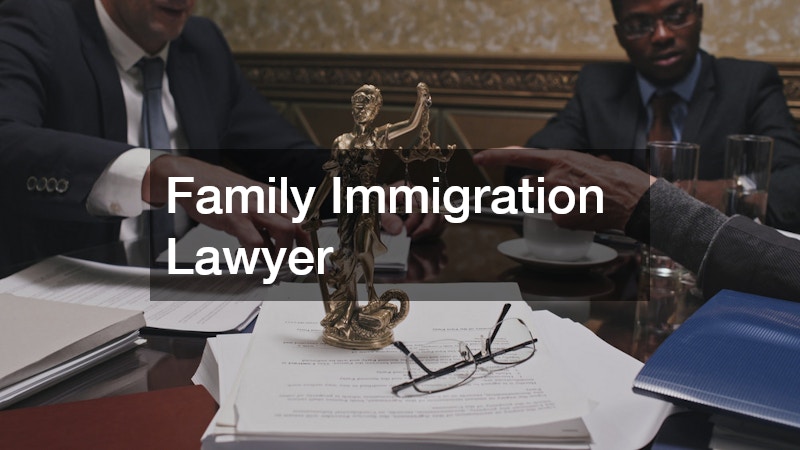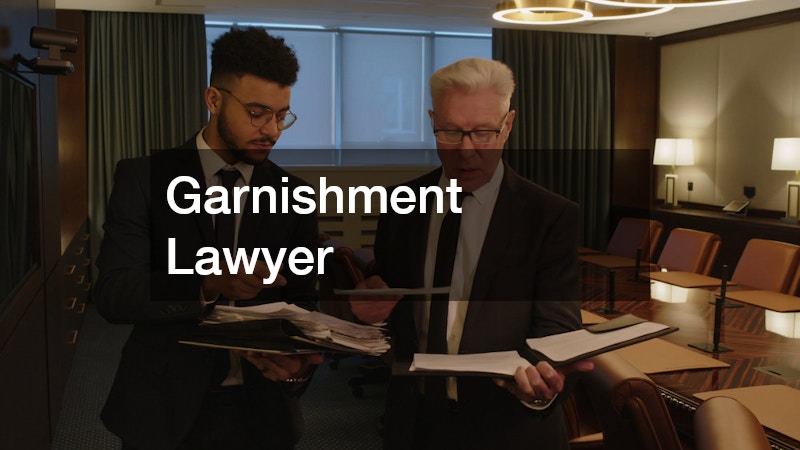Navigating legal issues can feel overwhelming—forming a will, facing criminal charges, dealing with a family dispute, or managing debt all require expert guidance. Lawyers specialize in distinct fields to cater to your specific needs. This guide explores the major types of attorneys, how they help, and when you might need them. Whether you’re seeking a family immigration lawyer, a chapter 7 bankruptcy lawyer, or a personal injury lawyer, understanding your options empowers you to take decisive action. Knowing which lawyer to approach in each scenario can save not only time and money but also provide peace of mind by ensuring you receive competent representation.
Family Lawyers & Divorce Lawyers
When to hire: Marriages under strain, custody battles, or adoption plans. Family law is broad—covering divorce, child custody/support, alimony, adoption, and more. Divorce lawyers specialize in dissolutions: dividing assets, negotiating alimony, and drafting parenting plans. Meanwhile, family lawyers may also handle prenuptial agreements, guardianships, or spousal support. The right attorney helps balance legal, emotional, and financial aspects, prioritizing fair outcomes—especially where children are involved.
Why it matters:
- Emotional support & legal strategy: Family lawyers offer much more than just legal advice; they provide emotional support, ensuring you feel understood and supported during challenging times. They strategically navigate the complexities of family law to achieve favorable results while considering the emotional dynamics involved.
- Insight into local procedures & court culture: A family lawyer or divorce lawyer adeptly maneuvers through local legal procedures and understands the nuances of court culture. Their experience in the local legal environment allows them to offer advice that aligns with jurisdictional norms and expectations.
- Contracts tailored to your family’s future: By customizing agreements such as prenuptials, child custody arrangements, or adoption papers, family lawyers tailor legal documents to best serve your family’s future needs. These tailored solutions ensure that family members’ rights are protected, minimizing future legal conflicts.
Family Immigration Lawyer

When to hire: Seeking visas, green cards, naturalization, deportation relief. Immigration law is complex and ever-changing. A family immigration lawyer helps reunite families and navigate complicated paperwork—from fiancée visas to U.S. citizenship. They represent you through interviews, adjudications, audits, or appeals, minimizing potential legal hurdles.
Key benefits:
- Secure accurate filings (e.g., K-1, IR-1, N-400): A family immigration lawyer ensures the accuracy of your paperwork, vital to a successful immigration process. Accurate filings reduce the risk of delays or rejections due to submission errors or missing documentation.
- Optimize eligibility and processing speeds: By leveraging in-depth knowledge of immigration law, an immigration lawyer optimizes the eligibility and speeds up the processing of forms. They help expedite your process when dealing with backlogs or complex cases.
- Navigate refusals, waivers, USCIS requests: Should you face any denial or require a waiver, the family immigration lawyer assists in crafting compelling responses. They guide you in addressing USCIS requests efficiently, maximizing the chances of a favorable decision.
Chapter 7 Bankruptcy Lawyer
When to hire: Facing overwhelming debt or creditor actions. Chapter 7 bankruptcy wipes out many unsecured debts—credit cards, medical bills—in exchange for liquidating non-exempt assets. A chapter 7 bankruptcy lawyer advises on eligibility, asset protection, exemptions, filing, and debt discharge. They guide you through 341 hearings and potential challenges from creditors, offering a fresh financial start.
Advantages of professional guidance:
- Maximize asset exemptions (e.g., homestead, vehicle): A chapter 7 bankruptcy lawyer is adept at safeguarding as many of your assets as possible through exemptions, ensuring you retain essential property. This expertise ensures that your transition to a debt-free life minimally disrupts your daily existence.
- Avoid fraud allegations or dismissal: Engaging a legal expert prevents allegations of bankruptcy fraud, as they ensure all information submitted is complete and accurate. Proper navigation through the process minimizes the risk of case dismissal and boosts the likelihood of debt relief.
- Protect rights amid garnishments or lawsuits: Beyond managing debts, a chapter 7 bankruptcy lawyer offers protection against ongoing garnishments or lawsuits. Their knowledge helps in asserting your legal rights effectively amid a challenging financial period.
Garnishment Lawyer

When to hire: Wages or bank accounts are being garnished. Wage garnishment occurs when creditors collect debts directly from your paycheck. A garnishment lawyer can assess improper garnishments, negotiate reduced claims, or secure exemptions to protect essential income, safeguarding your financial wellbeing.
What they do:
- Review collection notices & legal notices: A garnishment lawyer meticulously reviews collection and legal notices for credibility and compliance. This scrutiny aids in recognizing potential errors or injustices in the garnishment process.
- Exempt part of your wages via hardship claims: They determine eligibility for hardship claims that can exempt portions of your wages from garnishment, providing essential financial relief.
- Negotiate acceptable repayment plans: By interfacing with creditors, a garnishment lawyer negotiates more feasible repayment plans. These plans align better with your current financial situation, reducing the stress associated with wage garnishments.
Criminal Defense Lawyer
When to hire: Handled for DUI, assault, or more severe charges. A criminal defense lawyer defends against charges ranging from misdemeanors to felonies. Their job is to protect your rights—from the moment of arrest through sentencing. They handle evidence, cross-examine witnesses, challenge police procedures, and seek plea deals or acquittals, ensuring a fair trial.
How they help:
- Challenge unlawful searches or confessions: By scrutinizing law enforcement’s actions, the criminal defense lawyer ensures your rights are upheld, especially in cases of unlawful search and seizure or coerced confessions. Their involvement can result in evidence suppression when constitutional rights are breached.
- Mitigate charges or sentencing: They work diligently to have charges reduced or explore sentencing alternatives, focusing on mitigating potential penalties. Their advocacy aids in negotiating lesser penalties or alternative resolutions where possible.
- Advocate for alternatives like diversion programs: When appropriate, a criminal defense lawyer champions alternatives such as diversion programs or rehabilitation, which can lead to dismissed charges and clean records upon completion.
Personal Injury Lawyer & Auto Accident Attorney

When to hire: You were injured due to someone else’s negligence. If you’ve been hurt in a car crash, slip-and-fall, or medical mishap, a personal injury lawyer or auto accident attorney can maximize compensation. They manage investigations, document injuries, negotiate with insurance companies, and take cases to trial if needed, focusing on client recovery and relief.
Their value:
- Determine fault and calculate economic/non-economic damages: Personal injury lawyers meticulously assess fault and quantify damages, ensuring all costs, including emotional distress, are covered. This comprehensive approach secures adequate compensation for various loss elements.
- Pressure insurance firms with compelling evidence: By building robust evidence-based cases, these lawyers ensure insurance companies acknowledge injury claims’ severity. They operate skillfully within legal parameters to enhance compensation opportunities.
- Handle fee-based agreements—no win, no fee in many cases: Often, personal injury lawyers work on a contingency fee basis, meaning clients are only charged if compensation is achieved. This risk-sharing model aligns their focus with client success.
Estate Lawyer
When to hire: Planning your estate, trusts, wills, or handling probate. An estate lawyer helps you craft a will, set up trusts, and plan for end-of-life scenarios. They ensure your estate transfers efficiently, minimizing taxes, legal fees, and conflicts. Should you pass, they guide your heirs through probate, streamlining the inheritance process.
Areas of focus:
- Draft wills, trusts, advance directives: Estate lawyers specialize in constructing thorough estate planning documents, ensuring your assets are distributed following your wishes without needless complications. This preparation prevents unnecessary disputes among heirs.
- Set up guardianships for minors: They also establish legal guardianships, ensuring minors are cared for by trusted individuals in the event of parental absence. This proactive measure provides peace of mind for parents regarding their children’s futures.
- Minimize estate taxes and administrative delays: Expert in tax laws, estate lawyers devise strategies to minimize estate taxes. They expedite legal processes, reducing delays, and preserving more wealth for beneficiaries.
Elder Law Attorney
When to hire: Seniors or families planning long-term care or elder protections. Elder law attorneys focus on seniors’ legal needs—Medicaid planning, nursing home contracts, guardianships, and elder abuse protections. They help families plan for healthcare costs, asset transfers, and legal safeguards, enhancing seniors’ and their families’ quality of life.
Benefits they offer:
- Medicaid-qualified trusts or spend-down plans: They structure Medicaid-qualified trusts or other plans to maintain eligibility for care benefits while preserving family assets. This financial foresight helps manage healthcare costs more sustainably.
- Assessments of nursing facility contracts: By evaluating nursing home contracts, elder law attorneys protect clients from unscrupulous terms or hidden fees. Their oversight ensures that seniors receive appropriate care under manageable financial conditions.
- Interventions against financial or physical abuse: Should any financial or physical abuse occur, elder law attorneys intervene using legal mechanisms to protect victims. Their prompt action can stop abuse, secure restitution, and ensure proper care continues.
Choosing the Right Lawyer

Check credentials and experience:
- Bar association licenses: Ensure the lawyer you choose holds valid bar association licenses, indicating they meet the professional standards of legal practice in your jurisdiction. This verification safeguards against unlicensed practice issues.
- Relevant case history in your legal area: Evaluate the lawyer’s case history and success rate in your specific legal area for effective representation. Their prior experiences shape strategies and approaches tailored to your case.
- Client testimonials or referrals: Collect testimonials or referrals from past clients to gauge the lawyer’s reputation and reliability. Positive feedback can indicate a lawyer’s competence and commitment to client satisfaction.
Communication and transparency:
- Clear fee structures (hourly vs. flat vs. contingency): Investigate their fee structures for transparency—hourly, flat, or contingency. Knowing these financial expectations upfront avoids surprise costs and facilitates financial planning.
- Readable retainer agreements: Check agreement terms for clarity, ensuring no misunderstandings regarding your legal engagement. Comprehensive and understandable retainer agreements are crucial to effective client-lawyer cooperation.
- Responsive and available to address your concerns: A reliable lawyer should be reachable and open to discourse, prioritizing your concerns throughout the legal process. This availability fosters trust and ensures a more informed client.
Additional tips:
- Choose local counsel familiar with court procedures: Local lawyers versed in procedural nuances ensure jurisdiction-specific representation, boosting efficiency and effectiveness in court interactions. They can anticipate and navigate local idiosyncrasies deftly.
- Ask for alternative dispute resolution if suitable: Consider pursuing alternative dispute resolutions like mediation or arbitration as cost-effective solutions for suitable cases. These methods often yield quicker, less contentious outcomes.
- Ensure they are licensed in your jurisdiction: Confirm the lawyer holds a valid practice license within your jurisdiction to prevent legal complications that may arise from unauthorized representation. This validation is crucial for legitimacy.
When to Hire vs. Self-Help
Low-Risk DIY opportunities:
- Uncontested divorces: When all parties agree, consider handling simple, uncontested divorces without legal help, thus avoiding unnecessary expenditure. The DIY approach is viable only when mutual consent is fully established.
- Simple wills or filings: For uncomplicated estates, preparing simple wills is often feasible without professional legal assistance. Basic filings in straightforward scenarios are manageable for individuals equipped with appropriate resources.
- Minor traffic tickets: Addressing minor tickets by directly paying fines or attending traffic school may negate the requirement for legal intervention. These situations typically do not necessitate extensive legal expertise.
Hire a Lawyer When:
- Stakes are high—financially, legally, or emotionally: In high-impact cases, the professional acumen of a lawyer is indispensable to secure favorable resolutions. Engaging a lawyer minimizes risks in precarious legal or emotional situations.
- Evidence is unclear or contested: Legal representation is valuable when evidence is complex or disputed, ensuring all facts are thoroughly examined. Lawyers excel in articulating arguments and interpreting complicated evidence.
- Negotiations or court appearances are necessary: Lawyers are pros at negotiation, making them valuable allies in reaching settlements or court representation. Their involvement often results in less adversarial and more advantageous outcomes.
Legal issues can be daunting—but you don’t have to handle them alone. From managing debt with a chapter 7 bankruptcy lawyer, defending your rights with a criminal defense lawyer, caring for loved ones with elder law attorneys, or recovering after an injury with a personal injury lawyer or auto accident attorney, the right counsel makes all the difference. Hiring a lawyer safeguards your interests in various legal contexts, from family affairs to criminal defenses.
By identifying your legal needs and speaking with the right specialist—whether a family lawyer, family immigration lawyer, garnishment lawyer, estate lawyer, or divorce lawyers—you position yourself for better outcomes and peace of mind. Making informed choices about legal representation ensures your rights are upheld and your concerns addressed effectively. Remember, the keyword to navigating your legal journey successfully is choosing the right lawyer for your unique situation.
